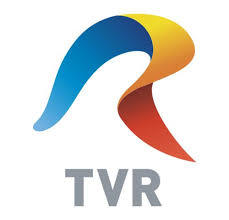
Concerns about independence and sustainability of the public broadcaster, as Romania proposes to abolish the subscription fee and introduce direct funding of the public radio-television
(Written by the Center for Independent Journalism in Bucharest and originally published by SEENPM on October 20, 2016)
The saga of the public broadcasting service in Romania was extended with a new troubled chapter on October 17, when the Senate (the upper chamber of the bi-cameral Parliament) voted to eliminate the subscription fee and introduce direct funding of the public radio and TV from the state budget.
The proposal, initiated by the Social-Democrats, comes as a surprise just weeks ahead the general elections (taking place on December 11). It was hidden in a draft law proposing the elimination of some 102 non-fiscal taxes. The draft bill has yet to be discussed in the Chamber of Deputies, the decisional body in this case.
The surreptitious way in which such a major change was introduced prompted comments of media organizations. “Eliminating the broadcast fee – without any impact analysis, without identifying appropriate budgetary sources and without measuring the impact on the state budget – is a proof of political amateurism and rudimentary populism”, said Ioana Avadani , the director of the Center for Independent Journalism, a SEENPM member.
“It is a populist and irresponsible measure, risking to turn the public media services into governmental services or, better said, propaganda services”, said Razvan Martin of the ActiveWatch organization (the Reporters Without Borders affiliate in Romania).
The two organizations, together with the Convention of Media Organizations, a platform of joint action gathering over 20 journalists’ associations and trade unions, addressed a letter to the Parliament, asking the MPs to reject the draft bill and start a serious, comprehensive and inclusive debate on the financing of the public media institutions in Romania, their mandate and their future.
The public television’s President of the Administration Council and general manager, Irina Radu, said that she is not “necessary opposed” to the idea of the direct funding of TVR from the state budget. “Even up to now, despite its theoretical independence, the public television was perfectly instrumentalized, politically influenced”, she said for Hotnews .
The public radio board issued a press release rejecting the proposal, saying that this move would result in the decrease of the editorial quality of its output and in “severing the only link” between the public radio and its public beneficiaries.
The Romanian public television is in serious financial difficulties, with debts amounting to more than EUR 151 million (by December 31, 2015, according to the TVR activity report ). In April 2016, TVR became the first ever organization eliminated from the Eurovision, over long unpaid dues. The public radio is in a much better financial situation , with a profit of EUR 5 million.
The license fee represents 67.56% of the revenues for the public television, and 49% for the public radio. The TV fee stays at 4 RON (0.8 Euro) per month, the lowest in Europe, and the radio fee is 2.5 RON (0.6 Euro) per month. The level of the fee is established by Governmental order and was last modified in 2003.
The law of the public radio and television was adopted in 1994. Despite the fact that the reform of the public media services constantly appeared on the platforms of all political parties over the last 20 years, no Parliament ever succeeded to amend the legislation in order to secure better civic control over the public media.
This publication has been produced within the project European Centre for Press and Media Freedom, co-funded by the European Commission. The contents of this publication are the sole responsibility of Osservatorio Balcani e Caucaso and its partners and can in no way be taken to reflect the views of the European Union. The project's page

 Romania to Eliminate Public Broadcast Fee
Romania to Eliminate Public Broadcast Fee




 All the contents on the Osservatorio Balcani e Caucaso website are distributed with a
All the contents on the Osservatorio Balcani e Caucaso website are distributed with a  To Top
To Top